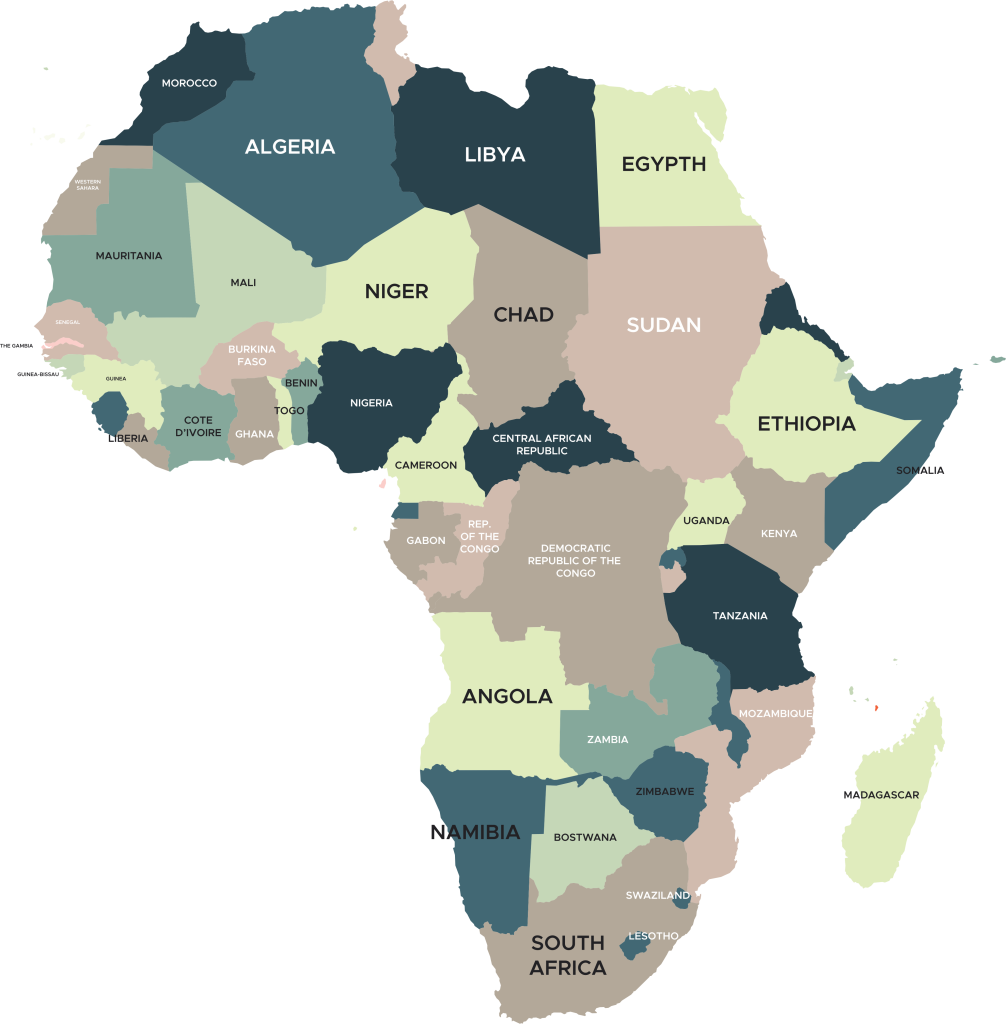Africa’s diverse renewable energy resources, including ample sunlight, strong winds, vast hydropower potential, and geothermal resources, provide an ideal foundation for renewable energy development and investment. The continent’s immense renewable energy potential surpasses current and future energy demands, making it a highly promising market.

As Africa’s population expands, urbanization accelerates, and economies develop, the demand for energy continues to rise. This increasing energy demand presents a significant opportunity for renewable energy solutions to meet the continent’s energy needs sustainably. By transitioning to renewable energy, Africa can reduce its reliance on fossil fuels, mitigate climate change impacts, and create a more sustainable energy future.
African governments have recognized the pivotal role of renewable energy in their national development agendas. Supportive policies, regulatory frameworks, and incentives have been implemented to attract investment in renewable energy projects. This favorable policy environment facilitates a conducive atmosphere for developers, investors, and businesses interested in participating in Africa’s renewable energy market.
The investment potential in Africa’s renewable energy sector is highly attractive. The combination of abundant resources, supportive policies, and growing energy demand creates a favorable investment climate. Domestic and international investors are increasingly drawn to Africa, recognizing the potential for significant returns on investment while contributing to sustainable development.
Furthermore, the off-grid renewable energy sector is gaining momentum in Africa. Decentralized solutions such as solar home systems and mini-grids provide electricity access to remote and underserved communities, driving poverty reduction, improving education and healthcare, and fostering economic empowerment.
African countries are also actively engaging in regional collaboration and integration efforts in the renewable energy sector. By promoting regional power pools, cross-border transmission infrastructure, and policy harmonization, African nations aim to optimize renewable energy utilization, enhance energy trade, and bolster energy security. This collaborative approach strengthens the overall attractiveness and market potential of renewable energy in Africa.
Notably, Africa’s renewable energy market presents a unique opportunity for job creation and economic growth. The sector requires a range of skilled and unskilled labor for installation, operation, maintenance, and manufacturing, contributing to employment generation and inclusive economic development.
Africa is richly endowed with vast renewable energy resources, including ample sunlight, strong winds, substantial hydropower potential, and geothermal resources. This availability of diverse renewable energy sources positions Africa as a prime location for renewable energy development and investment.
The continent’s renewable energy potential is immense. Africa has the capacity to generate a substantial amount of renewable energy, exceeding its current and future energy demands. With advancements in technology and project scalability, the potential for harnessing renewable energy resources in Africa is seen as a game-changer for the industry.
Africa’s energy demand is experiencing rapid growth due to population expansion, urbanization, and economic development. This rising demand presents a significant market opportunity for renewable energy solutions. By investing in renewable energy, Africa can meet its energy needs sustainably while reducing dependence on fossil fuels and mitigating the impacts of climate change.
African governments have increasingly recognized the importance of renewable energy in achieving their national development goals. Many countries have implemented favorable policies, regulatory frameworks, and incentives to attract investment in renewable energy projects. These supportive measures create a conducive environment for developers, investors, and businesses interested in the renewable energy market.
Africa’s renewable energy market offers attractive investment prospects. The combination of abundant resources, supportive policies, and growing demand creates a favorable investment climate. Domestic and international investors are increasingly drawn to Africa’s renewable energy sector, recognizing the potential for substantial returns on investment while contributing to sustainable development.
Off-grid renewable energy solutions, such as solar home systems and mini-grids, are gaining momentum in Africa. These decentralized solutions provide electricity access to remote and underserved communities, contributing to poverty reduction, education, healthcare, and economic empowerment. The off-grid sector in Africa is viewed as a high-impact investment opportunity with significant social, economic, and environmental benefits.
African countries are actively promoting regional collaboration and integration in the renewable energy sector. Through initiatives like regional power pools, cross-border transmission infrastructure, and policy harmonization, African nations are working together to optimize renewable energy utilization, promote energy trade, and enhance energy security. This collaborative approach enhances the overall attractiveness and market potential of renewable energy in Africa.
The renewable energy sector in Africa has the potential to generate significant employment opportunities and contribute to economic growth. Renewable energy projects require skilled and unskilled labor for installation, operation, maintenance, and manufacturing. This presents a unique opportunity to create jobs, empower local communities, and foster inclusive economic development.

Growth shortly is “led by solar and wind projects in Egypt, Algeria, Tunisia, Morocco and Ethiopia”. Indeed, as this infographic illustrates, North Africa is the current leader on the continent in terms of renewable energy capacity and is likely to stay in this position when factoring in the capacity currently under construction. The largest increase when all under-construction projects are completed will be seen in Central Africa, where the capacity is set to more than double. West Africa, on the other hand, has very little in the way of new capacity around the corner, with just 100 MW under construction at the time of publication, compared to the 15,201 in Central Africa, for example.
is currently impacted by the current slowdown in the global energy landscape and market.
adversely affected by the Russian invasion of Ukraine.
answer is not to replace fossil-fuel supplies but instead to focus on the energy transition.
Copyright © 2023 K’omani Energies, All Rights Reserved.